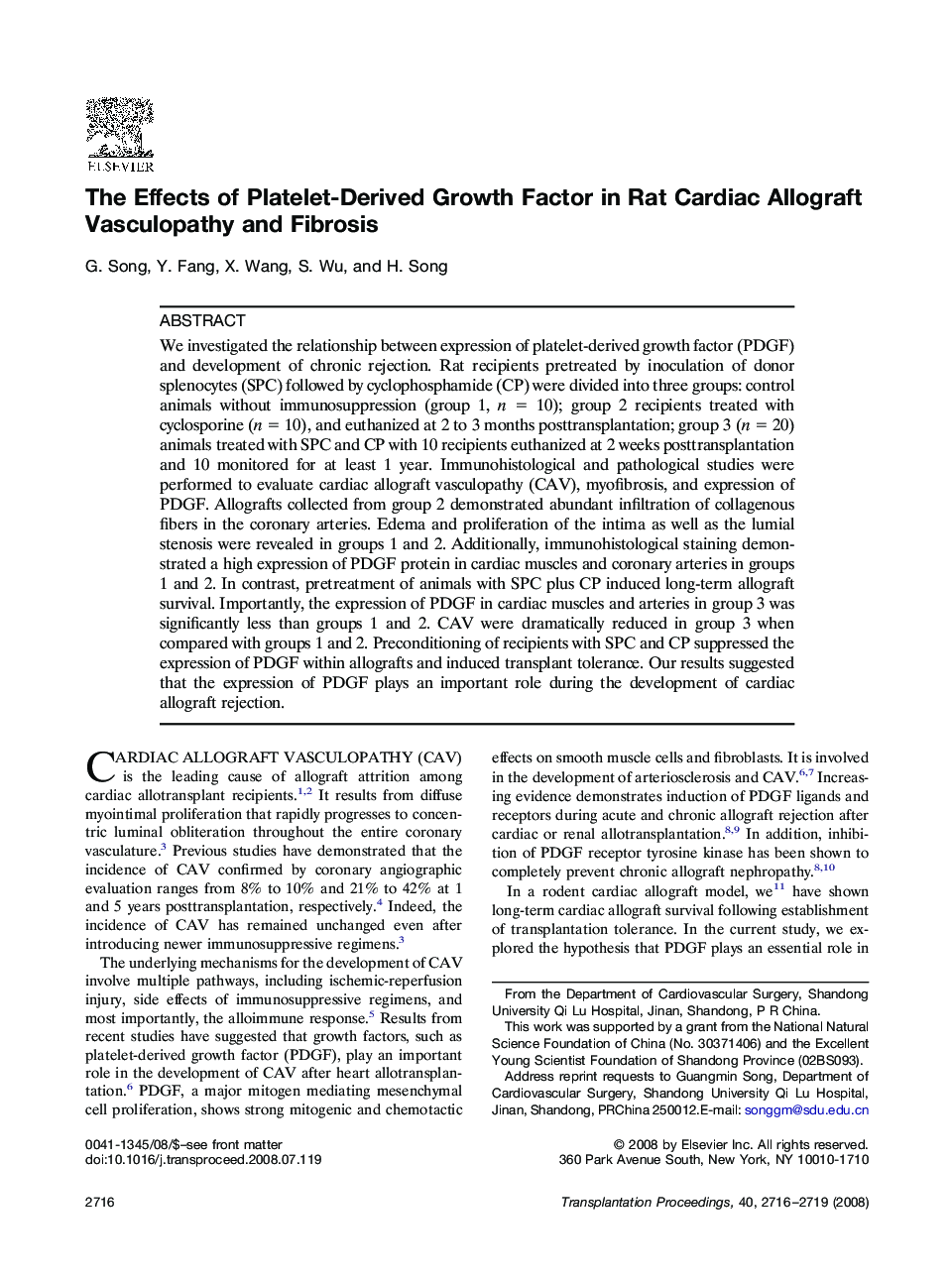| Article ID | Journal | Published Year | Pages | File Type |
|---|---|---|---|---|
| 4262040 | Transplantation Proceedings | 2008 | 4 Pages |
We investigated the relationship between expression of platelet-derived growth factor (PDGF) and development of chronic rejection. Rat recipients pretreated by inoculation of donor splenocytes (SPC) followed by cyclophosphamide (CP) were divided into three groups: control animals without immunosuppression (group 1, n = 10); group 2 recipients treated with cyclosporine (n = 10), and euthanized at 2 to 3 months posttransplantation; group 3 (n = 20) animals treated with SPC and CP with 10 recipients euthanized at 2 weeks posttransplantation and 10 monitored for at least 1 year. Immunohistological and pathological studies were performed to evaluate cardiac allograft vasculopathy (CAV), myofibrosis, and expression of PDGF. Allografts collected from group 2 demonstrated abundant infiltration of collagenous fibers in the coronary arteries. Edema and proliferation of the intima as well as the lumial stenosis were revealed in groups 1 and 2. Additionally, immunohistological staining demonstrated a high expression of PDGF protein in cardiac muscles and coronary arteries in groups 1 and 2. In contrast, pretreatment of animals with SPC plus CP induced long-term allograft survival. Importantly, the expression of PDGF in cardiac muscles and arteries in group 3 was significantly less than groups 1 and 2. CAV were dramatically reduced in group 3 when compared with groups 1 and 2. Preconditioning of recipients with SPC and CP suppressed the expression of PDGF within allografts and induced transplant tolerance. Our results suggested that the expression of PDGF plays an important role during the development of cardiac allograft rejection.
